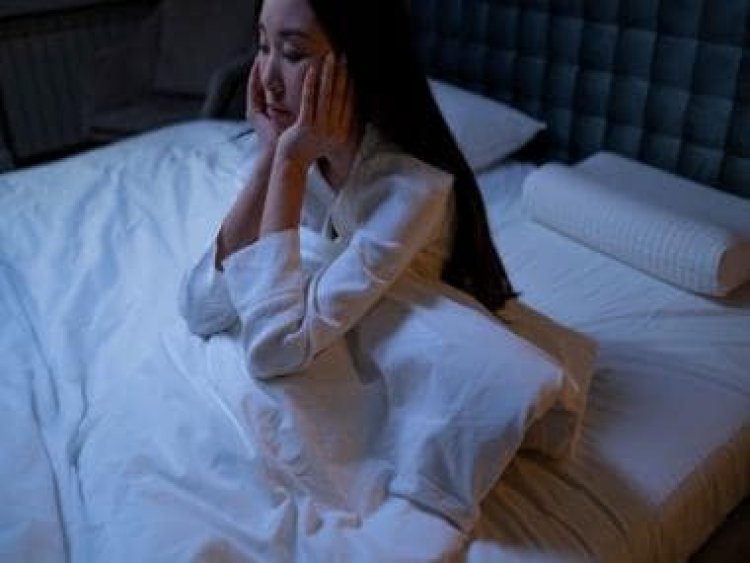Troubled Nights: Do transgender youth have trouble sleeping?
Troubled Nights: Do transgender youth have trouble sleeping?

Teenagers and young adults who identify themselves as transgenders or gender-nonconforming are more likely to have trouble sleeping than their cisgender counterparts.
A new study carried out by Michigan Medicine at the University of Michigan in the US found out that transgender youth is 5.4 times more susceptible to sleep disorders like insomnia and three times more likely to suffer from sleep apnoea.
The study is considered to be a breakthrough in sleep analysis as sleep health has rarely been examined on transgender and gender-nonconforming youth.
Let’s take a closer look.
What has the study found?
The research contained an analysis of data obtained from more than 1.2 million young people between the age of 12 to 25. Out of these, 2,603 identified as transgender and gender-nonconforming.
The results of the study are published in the Journal of Clinical Sleep Medicine and they are concerning.
It was found that mental health has a huge role to play in keeping transgender youth up at night. Galit Levi Dunietz, one of the authors of the study, said, “Transgender and gender-nonconforming identity may precede mental health disorders and both influence insomnia diagnosis.”
It is not an unknown fact that gender minorities across the globe are constantly and disproportionately burdened by poor mental health which are a result of low support from society, stigma and discrimination.
Sleep Foundation notes that not keeping up well mentally and emotionally correlates directly to how soundly a person sleeps. Mental health conditions like depression, anxiety, bipolar disorder and the like are closely intertwined with sleep.
“These results show a concerning number of individuals with disorders that harm sleep quality,” said Ronald Gavidia, a sleep medicine physician at the University of Michigan Health Department of Neurology.
He added, “Given this higher prevalence of sleep disorders in relation to cisgender youth, clinicians should consider screening and testing this population for such disorders.”
What is gender affirmative therapy and how does it help?
On the brighter side, however, researchers also analysed the links between gender-affirming therapy and sleep disorders and eventually it was found that these therapies act as a “protective” shield against deteriorating sleep health.
Gender-affirming therapy, according to Psychiatry.org, is a therapeutic stance that focuses on affirming a person’s gender identity and does not try to “repair” it.
Gender-affirming therapies address themes and issues like trauma, shame, depression, self-harm, violence, sexuality, medical treatment and societal stigma. The therapy helps a person to accept their gender identity, gives space to process and understand the changes and creates a safe space for them.
Also read: Not social media, THIS is the No 1 sleep killer
The research team at Michigan University explored the potential relationship between gender-affirmative therapies and sleep disorders. To everyone’s surprise, more than half of the transgender youth who were part of the study had gone through the therapy and this group was “half as likely to have any sleep disorder than transgender individuals who did not pursue the therapy.”
Based on these positive results, it is safe to say that gender-affirming therapy could indeed have a protective effect against sleep disorders.
Gavidia noted, “As mood disorders and insomnia have a bidirectional relationship, gender transition through affirming therapies could improve mental health, which, in turn, may decrease the proportion of insomnia by improving gender dysphoria, poor mood and minority stress.”
Mental health among transgenders
Transgenders don’t have it easy. Being a minority, they often have to bear the brunt of stigmatization, oppression and discrimination which are all major contributors to poor mental health.
In addition to the higher prevalence of mental health complications, transgenders are also often devoid of healthcare facilities.
According to the World Health Organisation (WHO), transgender people and other gender minorities comprise 25 million of the global population.
The US Transgender Survey says that many transgenders frequently experience mistreatment and discrimination. Out of the total respondents of their survey, 39 per cent reported serious psychological distress as compared to five per cent of the general US population.
Meanwhile, 40 per cent of the respondents also noted that they had attempted suicide in their lifetime.
The consequences of sleep disorders
Lack of sleep has consequences that are far from benign. The National Library of Medicine notes that on average, 50 to 70 million Americans chronically suffer from sleep disorders and wakefulness.
The health repercussions of sleep loss and sleep-related disorders include errors in judgment, poor performance, accidents and injuries and a deteriorating quality of life.
The symptoms of sleep disorders, according to the International Classification of Sleep Disorders, include excessive daytime sleepiness, difficulty initiating or maintaining sleep and abnormal or irritable behaviours.
With inputs from agencies
Read all the Latest News, Trending News, Cricket News, Bollywood News,
India News and Entertainment News here. Follow us on Facebook, Twitter and Instagram.
What's Your Reaction?



























































